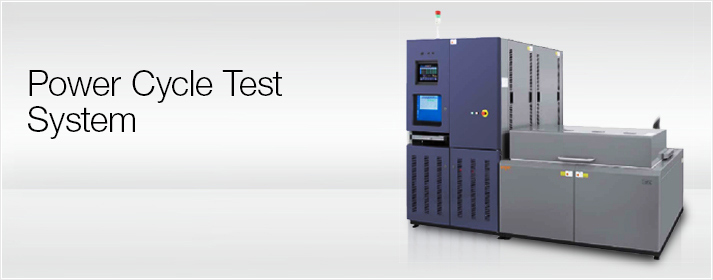IGBT and MOSFET power semiconductor test system
Power semiconductors are gaining attention for their energy-saving and environmentally-friendly design. ESPEC offers a new power semiconductor test system and power cycling test system.
The power semiconductors that can be tested are IGBT and power MOSFET. This system can be used in a wide variety of fields, including automotive, home appliances, mobile devices, and industrial machinery.
The power cycling test system plays an important role in enhancing the reliability of power semiconductors.
The system applies a large current in the power semiconductor, heats the inside of the device, and raises the temperature to the target high temperature. After the target temperature is reached, the large current is interrupted, generation of heat inside the device is stopped, and the power semiconductor is cooled with chiller water or air to the target temperature.
This is repeated to subject the device to thermal stress, thermal stress fracture is created, and the contact between the wire bonding and chip is evaluated.
In terms of the cooling method used by the test system to control the temperature of individual devices, cool air from a fan is used for small current drive devices and a water-cooling system that uses cooling water is used for large current drive devices. The water-cooling system controls the amount and temperature of the cooling water and enables control of individual devices to maintain the target temperature with a high accuracy of ±1°C. In addition, the system regularly obtains the device temperature, Ice, Vce, Vgs, and cooling water flow rate data and saves it to a CSV file for easy data analysis.
| Measurement part | |||
|---|---|---|---|
| Measurement mode | Base model | Option | |
| Characteristic measurement | TCR measurement | ○ | |
| Temperature transient response measurement | ○ | ||
| Test mode | Time fixed control | ○ | |
| Tj temperature control | ○ | ||
| Tc temperature control | ○ | ||
| Vf control | ○ | ||
| Superimpose | ○ | ||
| Continuously energized | ○ | ||
| Application mode | Constant current mode | ○ | |
| Constant power mode | ○ | ||
| Time fixed, Tj target | ○ | ||
| Analysis mode | Heat capacity/heat insulation (structure function) | ○ | |
| Tj/cycle (sequential data) | ○ | ||
- New analysis function: (1) Structure function
-
Structure function
Objective: Graphical display of change over time (failure locations)
Method: Excess thermal resistance measurement using cooling method
Effect: Displays the ease of transmission of heat of components with a inclination angle

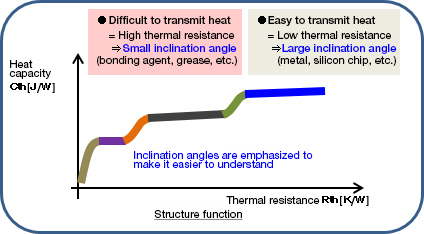
- New analysis function: (2) Superimpose test
-
Patent no. 5731448 (issued June 10, 2015)
This test is synchronized with a power cycling test, which varies the ambient temperature, thereby compositely subjecting the device to thermal stress from thermal cycling and self heat generation stress from power cycling.
* Power cycling composite test that meets the actual vehicle environment

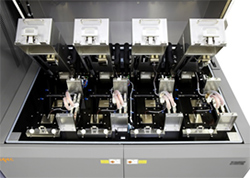
- Cooling plate part (water cooling)
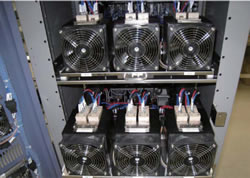
- Power MOSFET specifications, cooling air type
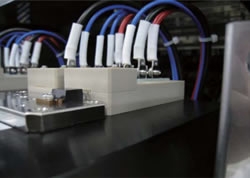
- Cooling plate part (air cooling)
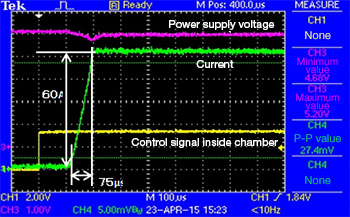
- Stress current waveform
Recommended products for customers viewing this product




